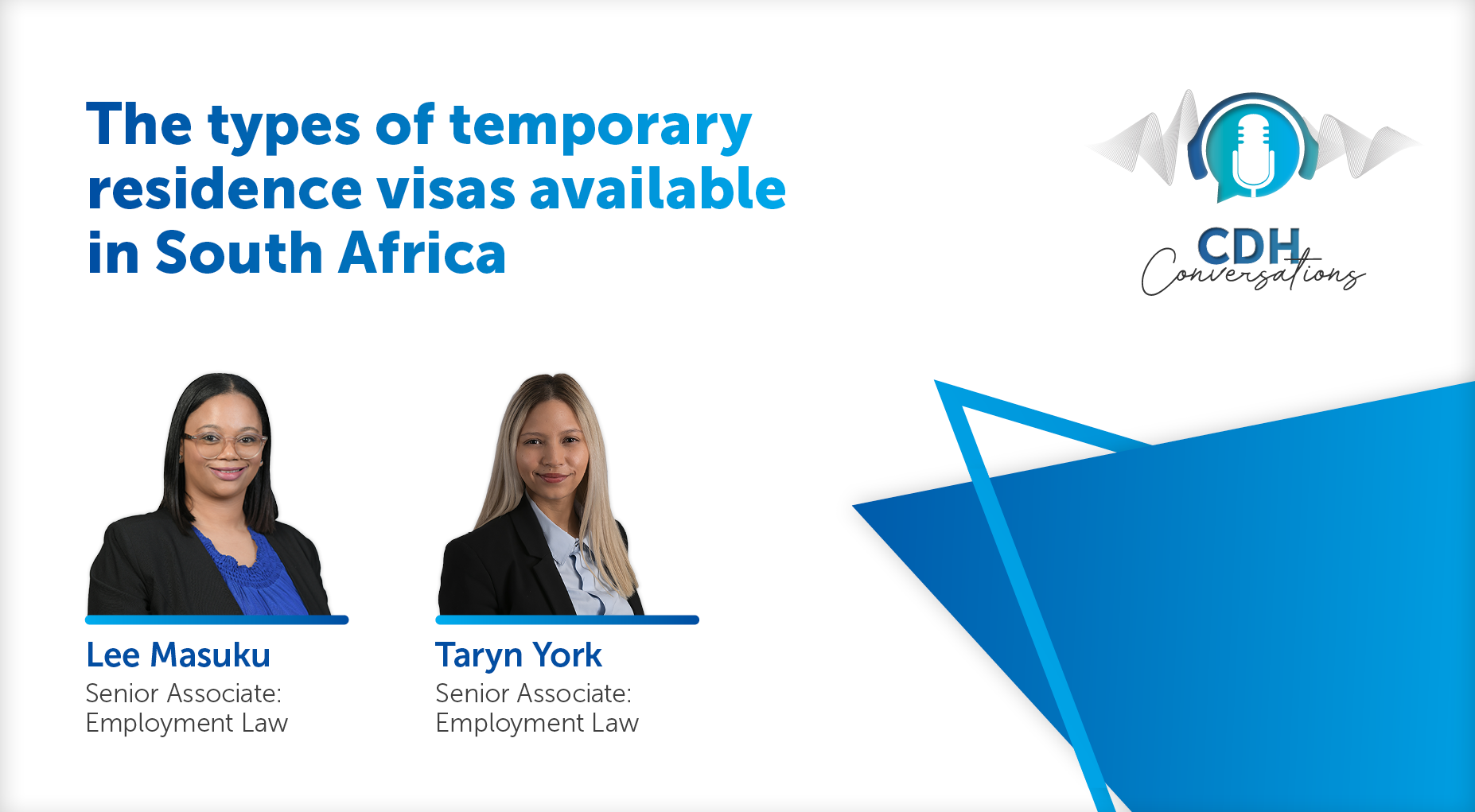Concurrent jurisdiction: A balancing act between intervention and independence
At a glance
-
The Tribunal interdicted Sasol from increasing the price of gas above the maximum price of R68.39/GJ generated under the Second Methodology, as determined by the National Energy Regulator of South Africa (NERSA), unless it gives the Industrial Gas Users Association of South Africa (IGUA-SA) at least two months’ written notice.
- Telkom SA Limited v Competition Commission of South Africa and Another (11239/04) [2008] ZAGPHC 188 (20 June 2008) was one of the first cases to consider this provision and the competition authorities’ exercise of powers in a regulated sector.
- In essence, the competition authorities can intervene in regulated sectors and exercise their powers.
The Tribunal interdicted Sasol from increasing the price of gas above the maximum price of R68.39/GJ generated under the Second Methodology, as determined by the National Energy Regulator of South Africa (NERSA), unless it gives the Industrial Gas Users Association of South Africa (IGUA-SA) at least two months’ written notice.
The provision at issue in these matters is section 3(1A) of the Competition Act 89 of 1998 (Act), which deals with concurrent jurisdiction of regulators and competition authorities, and specifically provides that:
“a) In so far as this Act applies to an industry, or sector of an industry, that is subject to the jurisdiction of another regulator, which authority has jurisdiction in respect of conduct regulated in terms of Chapter 2 or Chapter 3 of this Act, this Act must be construed as establishing concurrent jurisdiction in respect of that conduct.
b) The manner in which the concurrent jurisdiction is exercised in terms of this Act and any other public regulation, must be managed, to the extent possible, in accordance with any applicable agreement concluded in terms of section 21(1)(h) and 82(1) and (2).”
Where there is no such agreement or memorandum of understanding between regulators and the competition authorities, issues regarding concurrent jurisdiction arise.
Interventions in regulated sectors
Telkom SA Limited v Competition Commission of South Africa and Another (11239/04) [2008] ZAGPHC 188 (20 June 2008) was one of the first cases to consider this provision and the competition authorities’ exercise of powers in a regulated sector. In this matter, parties that relied on Telkom’s lines to offer their services lodged a complaint against Telkom on the basis that Telkom’s refusal to provide telecommunications facilities to an association constituted an exclusionary act, a refusal to provide access to an essential facility or price discrimination. Telkom challenged the Competition Commission’s (Commission) jurisdiction to refer these allegations to the Tribunal, as the conduct in the complaint fell within the Independent Communications Authority of South Africa’s exclusive jurisdiction in terms of the Telecommunications Act 103 of 1996 (Telecommunications Act), and/or by the sector regulator in terms of Telkom’s licenses. However, the Supreme Court of Appeal held that the Act applies to all economic activity within South Africa, including Telkom’s conduct, and that the Telecommunications Act did not oust the Commission’s jurisdiction to investigate competition matters in the telecommunications industry.
In essence, the competition authorities can intervene in regulated sectors and exercise their powers. However, this case did not clarify whether the competition authorities’ jurisdiction can be entirely excluded by sector-specific legislation and a specific provision empowering a regulator.
NERSA and the Gas Act
However, this seems to have been answered by the Sasol case where NERSA was mandated under the Gas Act 48 of 2001 (Gas Act) to determine the maximum price of gas where there is inadequate competition – thus granting a sector regulator a specific power. The question was whether this provision entirely excluded the competition authorities’ jurisdiction. Contrary to NERSA’s determined price of R68.39/GJ, Sasol supplied gas at a maximum price of R273.43, due to international gas price fluctuations. This price margin difference caused IGUA-SA to lodge an excessive pricing complaint with the Commission against Sasol.
Sasol subsequently reduced the price to R133.34/GJ, and then to R68.39/GJ, due to public outcry, but was due to announce a new maximum price for 2023.
In the meantime, Sasol failed to respond to a request for information from the Commission in relation to the excessive pricing complaint, resulting in the Commission issuing a summons against Sasol. Sasol subsequently brought an application suspending the summons’ legal validity on the basis that the Commission lacked jurisdiction, as NERSA had determined the maximum gas price (as mandated by the Gas Act). IGUA-SA subsequently launched an interim relief application in the Tribunal to seek an interdict against Sasol to prevent it from increasing its gas price above R68.39/GJ.
Before the Tribunal
In determining whether to grant the interim relief, the Tribunal recognised that there was a prima facie right, in that IGUA-SA has a right not to be subjected to excessive pricing in circumstances where there is inadequate competition. The Tribunal also held that IGUA-SA had demonstrated a reasonable apprehension that the gas price would be increased to a level which would cause them serious or irreparable damage. However, in relation to the balance of convenience (which must favour the granting of the interim relief), Sasol argued that this requirement was linked to IGUA-SA’s prospects of success in the Commission’s excessive pricing investigation. As a result, the Commission’s investigation essentially usurped NERSA’s powers in terms of the Gas Act to determine the maximum price of gas where there is inadequate competition.
The Tribunal disagreed and held that NERSA’s decision did not confer on Sasol an unqualified right to charge the maximum price approved by NERSA, as it was qualified by IGUA-SA’s right not to be subjected to excessive pricing. Further, the Tribunal held that it was highly probable that the maximum permissible price derived from NERSA’s methodology as determined by Sasol would constitute excessive pricing. As a result, the Tribunal held that due to the nature of the excessive pricing complaint, which affected consumers, the balance of convenience favoured granting the relief.
Consequently, the Tribunal interdicted Sasol from increasing the price of gas beyond R68.39/GJ, pending the Commission’s investigation into the excessive pricing allegations, unless it has given IGUA-SA at least two months’ written notice. The reason for the Tribunal’s intervention may stem from NERSA’s empowering provision, as NERSA was granted the power to approve maximum prices for gas only where there is inadequate competition. However, it does not have a general power to regulate gas prices and the Gas Act is silent on the meaning of “inadequate competition”, and therefore it is unclear as to the relevant markets and the methodology to be used to determine whether there is inadequate competition. Thus, it is unclear when NERSA can actually exercise this power. This provision’s ambiguity highlights the potential for competition authorities to intervene in regulated sectors, even where a specific regulator is empowered.
International cases
This issue has also been contentious in the European Union (EU), most prominently in the case of Deutsche Telekom AG v Commission [2010] C-280/08, where Deutsche Telekom AG (DT), which had been charged with abuse of dominance and excessive pricing by the EU Commission, argued that it had not abused its position as its prices were approved by the German telecoms regulator, RegTP. However, the Court of Justice of the EU (similar to the competition authorities’ position in South Africa) held that the mere fact that DT was encouraged by the regulator’s intervention to maintain the pricing practices which led to the margin squeeze of competitors did not absolve DT from responsibility under competition law, specifically abuse of dominance provisions. Thus, while a regulator may approve certain prices or actions of a firm, this does not absolve them from competition authorities’ oversight.
Ultimately, in the Sasol case, the Tribunal’s reasoning indicates that the Tribunal is taking a more robust approach to abuse or excessive pricing cases at interim relief stage, particularly where a sector regulator also has jurisdiction. However, while competition law focuses on market outcomes, sector regulators consider broader public interest objectives; and furthermore, sector regulators have technical knowledge for the particular market, while competition authorities do not always have such technical expertise, which may result in differing approaches to issues of maximum permissible pricing.
Enabling legislation may therefore need to cater for instances where a conflict between policy objectives and competition objectives, resulting in different regulatory outcomes, would need to be resolved in the interests of fostering certainty within particular sectors, particularly for the purposes of encouraging investment and innovation. There may be various ways of achieving greater consistency, such as by creating areas of exclusive jurisdiction rather than concurrent jurisdiction or through greater mandatory co-operation between the competition authorities and sector regulators; all of which would require the Legislature to intervene.
The information and material published on this website is provided for general purposes only and does not constitute legal advice. We make every effort to ensure that the content is updated regularly and to offer the most current and accurate information. Please consult one of our lawyers on any specific legal problem or matter. We accept no responsibility for any loss or damage, whether direct or consequential, which may arise from reliance on the information contained in these pages. Please refer to our full terms and conditions. Copyright © 2026 Cliffe Dekker Hofmeyr. All rights reserved. For permission to reproduce an article or publication, please contact us cliffedekkerhofmeyr@cdhlegal.com.
Subscribe
We support our clients’ strategic and operational needs by offering innovative, integrated and high quality thought leadership. To stay up to date on the latest legal developments that may potentially impact your business, subscribe to our alerts, seminar and webinar invitations.
Subscribe



